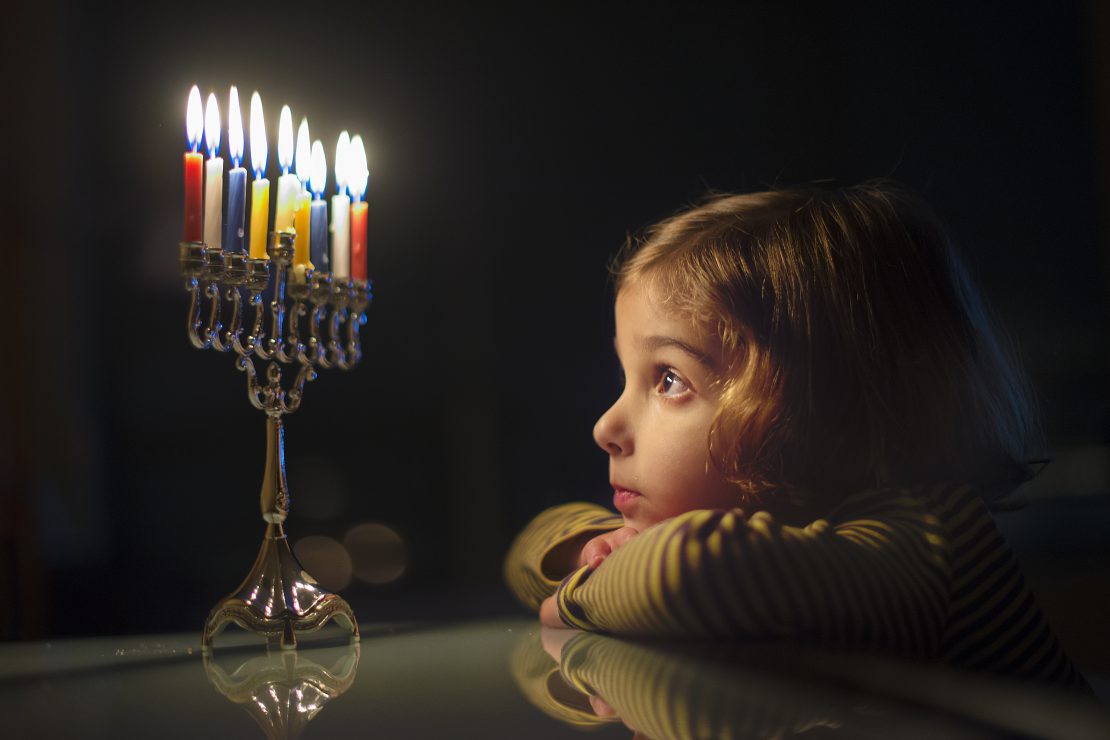When it comes to parenting, there’s no definitive, manufacturer-approved manual. Parenting Jewish is even harder—especially when your children are the only Jews in their peer group. Here we asked a Chabad representative to respond to a conundrum that commonly comes up among Jewish parents during this time of year.
Dear Rabbi,
My kids are part of a local choir. In advance of the holidays, the choir leaders are taking the group carolling around the neighborhood—visiting homes and senior living centers. Our family hasn’t participated in any religious activities in the past, but the kids really want to go. The way I see it, it’s an innocuous activity: the kids don’t know what carolling is, and it just seems like a chance for them to join their friends in a fun activity that spreads some joy.
If I teach my boys about this ahead of time, and maybe add in a few Chanukah-themed songs, would that sorta’ make it okay? What are your thoughts?
A Jewish Mom
~~~
Dear Jewish Mom,
It is clear that you’ve given thought to the subliminal aspects of this pursuit, which means that you appreciate that what appears to be a rather innocuous activity may be more complex.
Without looking at any halachic components to this question, I’d like to draw your attention to a couple of ideas, as you journey towards your solution:
On an esoteric level, a teaching of Rabbi Schneur Zalman of Liadi, the founder of Chabad, comes to mind: “If words are the pen of the heart, then song is the pen of the soul.” Every song has subconscious communication and emotional messaging. Music is a tremendous part of spiritual practice because it is a gateway to our inner selves and is an expression of the composer’s soul. Music creates a connection between the listener, the melody, and the composer at the subconscious level, where our natural defense mechanisms don’t kick in. This is why many people are selective about the music that they listen to and expose their children to.
So the first question to ask is: Do the subconscious communication and emotional messaging of this music align with the values that I want to teach my child?
Next, it’s important to recognize that parents have two essential tools available to them, which they can use to teach their children values and help them grow. Those tools are clarity and consistency.
These two tools are extraordinarily valuable when it comes to facilitating a child’s social development, and they are invaluable when it comes to facilitating a child’s spiritual development. So ask yourself: Are you staying consistent in your spiritual messaging to your child? Are you creating a clear understanding of who you are and where your boundaries lie?
Regardless of whether your children consciously understand what they are doing today, there are parts of them that fully understand your confusion and doubt. Compromising on your boundaries blurs lines that were previously clear. It isn’t healthy to their development.
However you answer these questions, I would like to encourage you to utilize this challenge as a teachable moment. Talk with your child about your mixed feelings and the deep connections to your faith that inspired you to ask this question. These open conversations with our children roleplay healthy problem-solving techniques and illustrate how we ask for guidance. And that education is priceless.
Wishing you a joyful Jewish parenting,
Rabbi Yarden Blumstein
Teen Director and UMatter Director at Friendship Circle of Michigan, Rabbi Yarden Blumstein oversees teen-volunteers and directs a teen engagement system geared towards teens in isolation and crisis, as well as suicide prevention.
What are your thoughts? How would you answer this question? Submit your response here, or email editor@lubavitch.com.

Barry Goldberg
You did not answer her question. Without a doubt the Rebbe would say absolutely not. It gives credence to Jesus.
Karen Renfro
Well, I think it is good for Jews & Christians to participate in one another’s holiday rituals. Hanukkah is a wonderful holiday that celebrates God’s miracle of the lamp that burned for eight days, a lot of history there, and a perfect time to listen to Handel’s Oratorio “Judas Maccabeus” which was popular in the 18th Century among American colonists who were mostly Christians. Christmas is a wonderful holiday because its message is about giving, based on the Gospel message of God’s gift to mankind. Jesus was a Jew, he even read a passage from Torah at the local synagogue regularly. There is no reason inherent in Judaism or Christianity for adherents to either faith for animosity. If we let our kids celebrate our religious customs together, who knows what good will come of it!